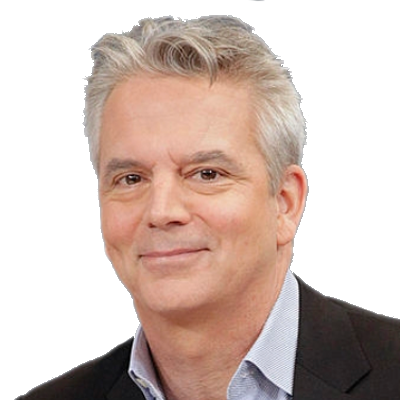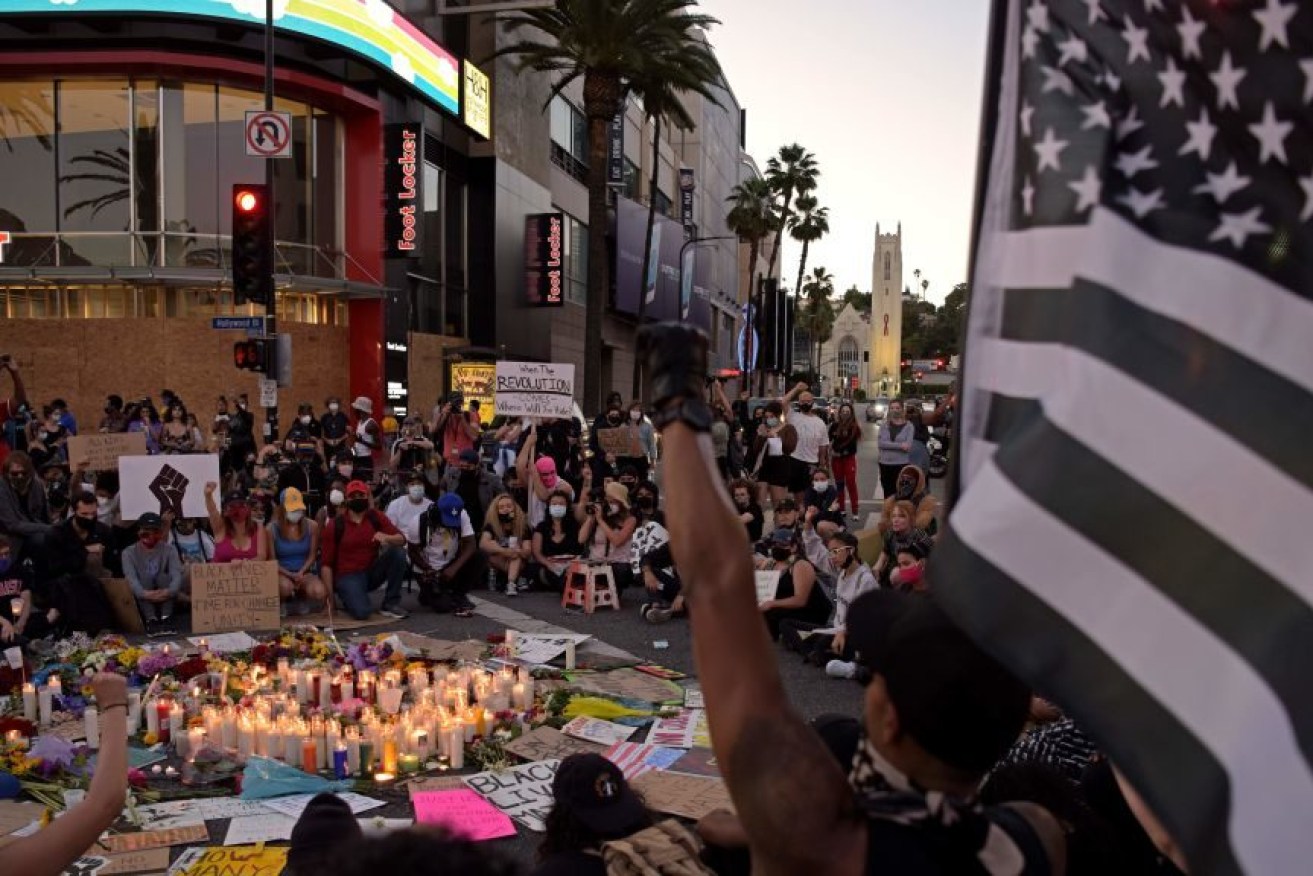Hollywood has questions to answer over positive police stereotypes


People gather around a makeshift memorial in honor of the victims of police brutality, during a demonstration against racism, in Hollywood Photo: Getty
Video games encourage violence, rap music fans disrespect, movies promote premarital sex.
It’s easy to blame Hollywood, instead of doing the real work at examining societal woes.
But today I find it hard to deny – though it has been easy to ignore – pop culture’s role in spreading the stubborn stereotype now convulsing the US.
No, not the one about the dangerous black man. It’s the one about the police officer.
It is an image sewn deep in the national psyche – or at least the one shared by white people.
When I was a kid, I had picture books filled with archetypal figures: The pilgrim, the Indian, the astronaut, the farmer. And the police officer.
Here in New York City in the 1960s, afternoon kids’ TV was hosted by Officer Joe Bolton, a benign Irish cop figure who absently twirled his nightstick while introducing another Three Stooges episode.
Remember kids, Officer Joe is your friend!
By the age of eight, I was glued to reruns of Adam-12, which began each episode with a Siri-like voice, issuing cryptic coded messages, dispatching our hero officers to the latest disturbance somewhere in greater Los Angeles.
The show, like its predecessor, Dragnet, was a stoic civics lesson wrapped in a bromance: Policeman as a loyal partner, trusted friend, community servant, fair-minded protector.
Each vignette – true stories, we were reminded – hammered home the benevolent nature of the police as a bulwark against the rot spreading through 1960s America.
Is there any occupation we think we know as much about?

The cast of wildly successful TV drama NYPD Blue.
The rituals and procedures, the crummy lighting and lousy coffee.
Cop portrayals grew more varied the past few decades, from Dirty Harry to Live PD, ambivalence and ambiguity supplanting more simplistic views of right and wrong.
But the heroic undertow has never ebbed. After all, who wants to watch a TV about a bunch of clerks issuing traffic summonses?
But policing – and police – are not what we see on television.
Alex Vitale, in his 2017 book The End of Policing, points out that most police work is routine patrols and ticket writing.
Bad guy-busting detectives are a small part of any force, and large numbers of crimes go unsolved.
Beyond that, police departments have been tasked with managing street-level social ills, like homelessness and mental health issues, that have been punted by politicians.
Police departments, with their military hierarchies and ability to use violence, are profoundly ill-equipped to manage those sorts of problems, Vitale writes.
What’s not seen on police dramas is the history – the history of how early police departments were designed to round up escaped slaves, and how they refused to enforce the laws when white Southerners terrorised freed blacks during Reconstruction after the Civil War.
How they disrupted labour rallies in the 1920s and ’30s, or targeted “radical” political groups like the Black Panthers during the 1960s.
To this day, the average big-city police department in the US is 25 per cent more white than the communities they serve.
In Minneapolis, where George Floyd died, 90 per cent of cops don’t live in the city they patrol.
But the notion that police departments were designed to serve and protect has been remarkably obstinate.
Even the most progressive politicians usually see police brutality and misbehaviour as the work of some bad apples, not a fundamental problem with policing itself.
Just look at New York City Mayor Bill DeBlasio, trying to defend brutal police tactics on demonstrators during the past week’s marches.
It’s ironic, because Mr DeBlasio won his office in 2013 by denouncing Stop and Frisk, an “anti-crime” measure that led to tens of thousands of young black men undergoing random searches from cops.
Now, his credibility seems shot.

New York Mayor Bill de Blasio speaks to an estimated 10,000 people as they gather in Brooklyn’s Cadman Plaza Park for a memorial service for George Floyd.
The outpouring of disgust over Mr Floyd’s death and the cops’ role seems to have galvanised the US.
What seemed like isolated incidents of rogue cops in the past has now coalesced into national reckoning.
There is much talk of “defunding” the police—a vague term that can mean redirecting police budgets to social programs, or even outright elimination.
The Minneapolis City Council announced such a plan on Sunday—after the city’s young mayor, Jacob Frey, was booed off a stage for refusing to endorse dismantling the department altogether.
But despite the national upheaval, some experts remain sceptical.
Powerful police unions have disfigured themselves from working-class advocates into bullying pressure groups that cow local political leaders.
Law-and-order politicians still see advantages to the status quo (see: Trump, Donald).
And White America, though outraged by Mr Floyd’s death, does not feel the daily police presence like urban Americans do.
The impact of all those cop shows, it would seem, dies hard.
“We have 400 years of history of policing that tell me things tend not to change,” law enforcement expert Lorenzo Boyd told the Washington Post.
“It’s a breaking point right now, just like Trayvon Martin was a breaking point, just like Michael Brown was a breaking point. But the question is: Where do we go from here?”
Larry Hackett is the former editor-in-chief of People magazine, and a contributor to the US morning television news program Good Morning America








